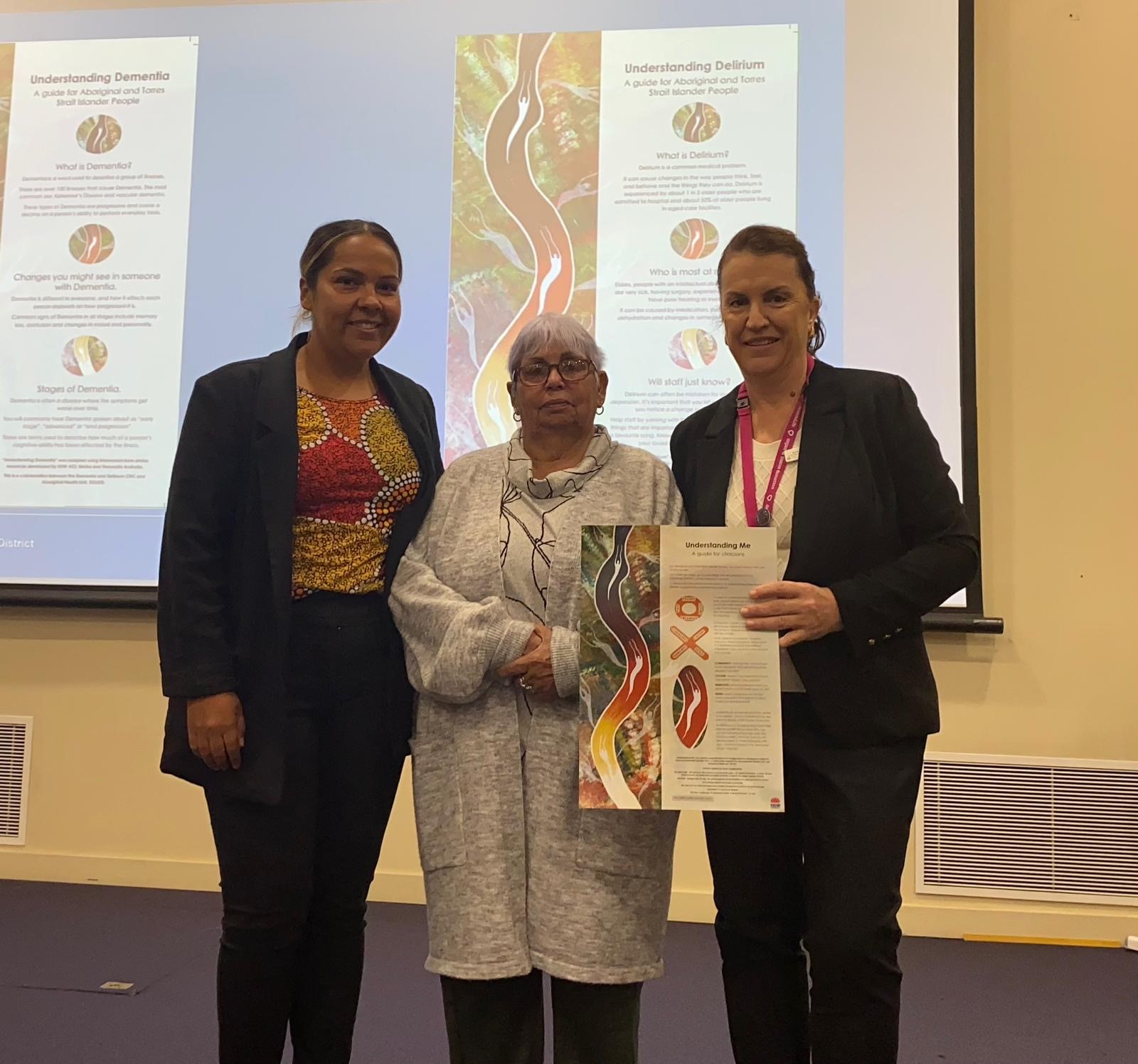Care and compassion for Aboriginal Elders
A new set of screening tools has been created in our District which will put Aboriginal Elders at the centre of their care.
This important project aims to provide culturally-safe care, when historically resources of this kind have not been tailored to meet the needs of Aboriginal people.
A successful Nursing and Midwifery Office (NAMO) application allowed for the funding of these screening tools, which were co-created by Dementia and Delirium Clinical Nurse Consultant, Kellee Barbuto (pictured right) and members of the Aboriginal Health Directorate.
The tools include a dementia information flyer, delirium information flyer and a person-centred poster which speak to community and convey important information about dementia screening.
“This work is to help support some of our most vulnerable community members, our Elders,” said Skye Parsons, Director of Aboriginal Health (pictured left).
“In a system that for many is full of fear and mistrust, this work enables all staff to put an Aboriginal lens into the way we care for community”
“SESLHD is truly committed to health equity, so the idea of screening tools that speak to community will ensure Aboriginal people are screened correctly and with the best possible health care provision available as they need it,” Skye said.
It’s hoped these resources will help close the gap in dementia care, improve the cultural competency skills of the workforce in SESLHD, and allow Aboriginal Elders to receive the highest quality of care.
Local artist, Aunty Annette Webb (pictured centre) created an artwork to feature on the resources. Aunty Annette had this to say about the meaning of the painting:
“The start of life- we are born. The brain is a powerful organ. We need it to function, to learn, to heal and to survive. Our brain and our bodies develop to capture the unique beauty of living. The brain changes and we age. We go through life without realising we need our brain to survive. This painting depicts the brains cycle of life. We are born. The brain develops and changes throughout our life as we grow and age. Dementia is a very cruel disease. The end – in the end, it's just black, blank. If it doesn’t function- it's lost.”
